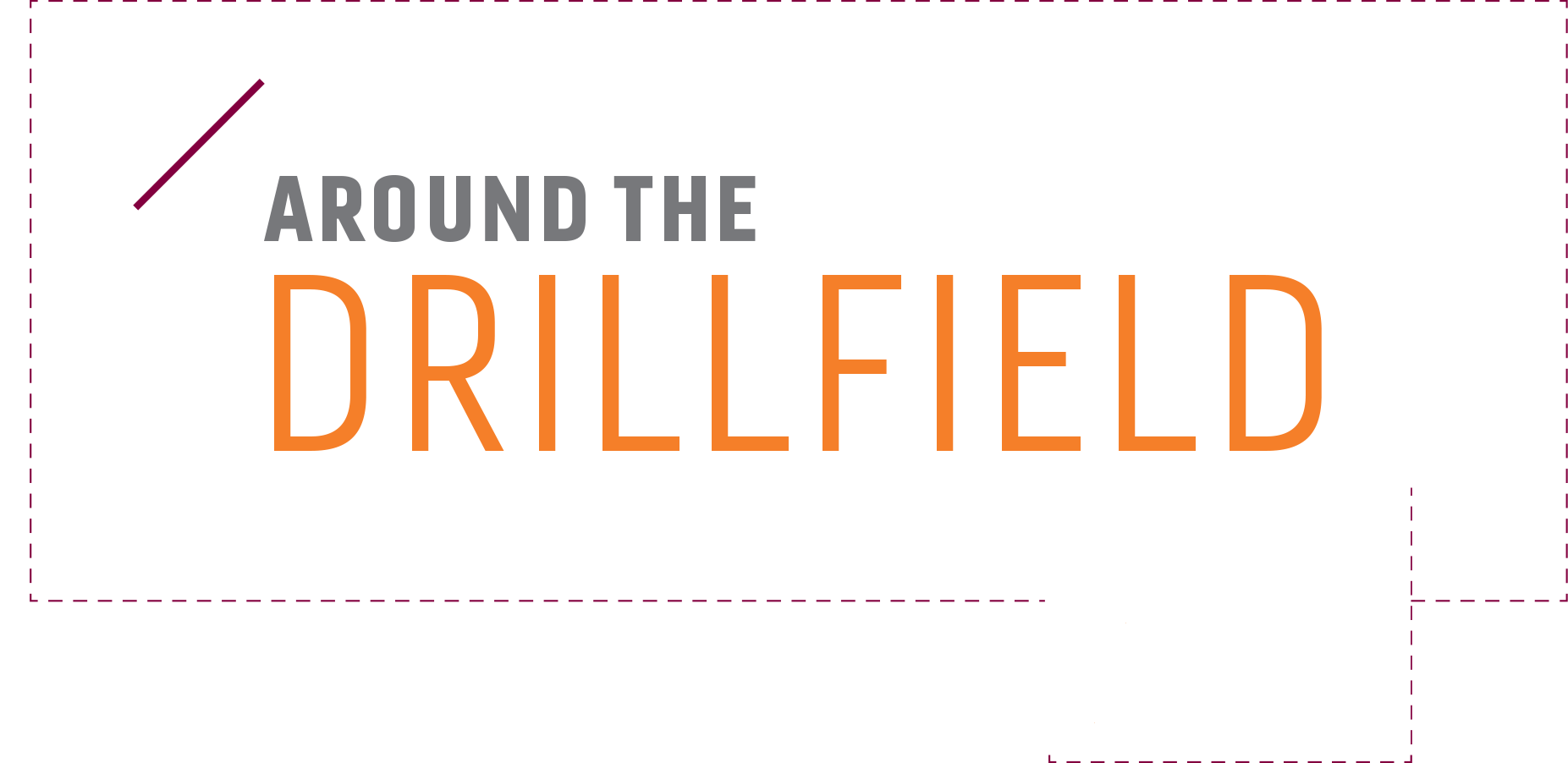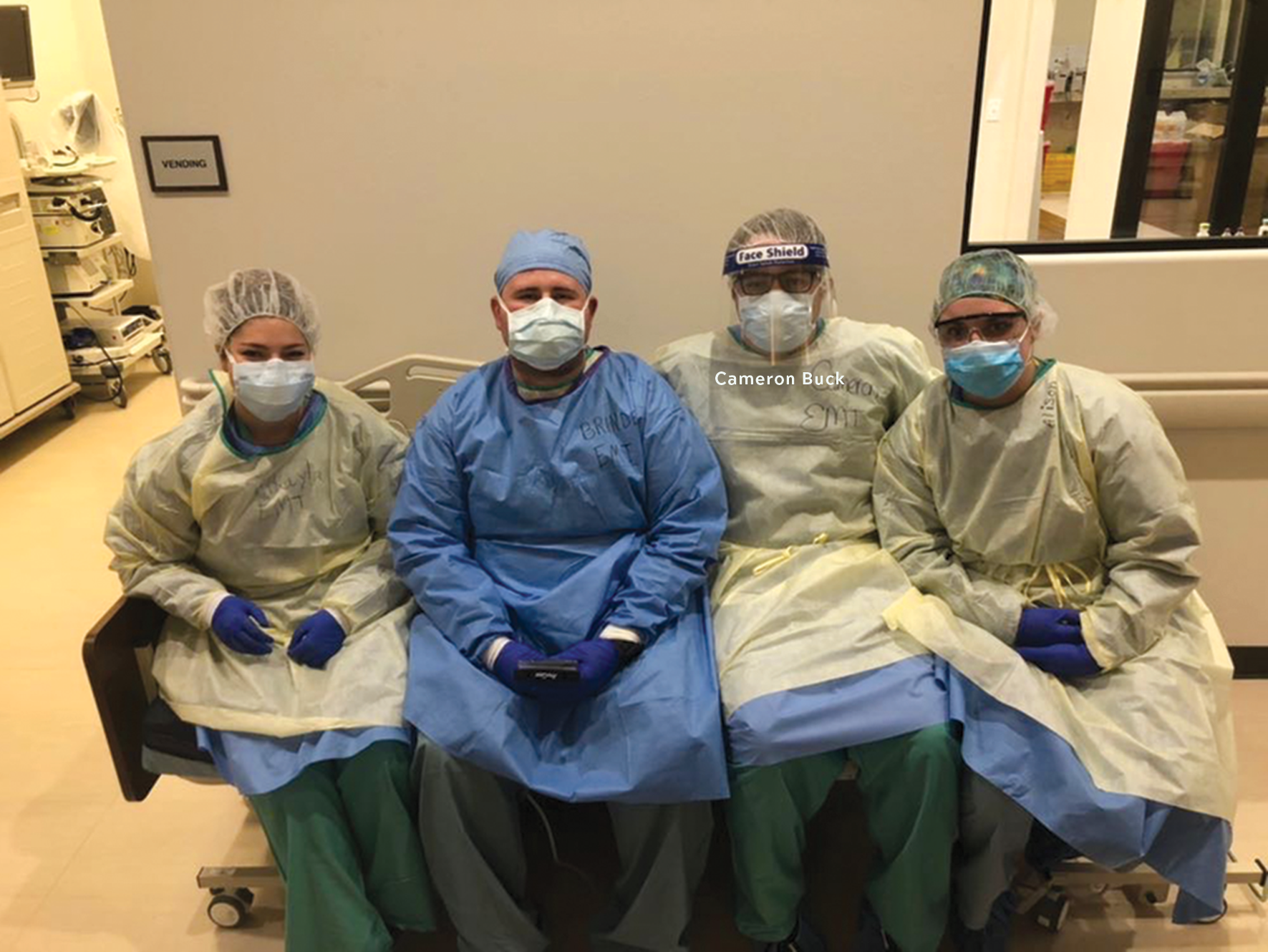by Travis Williams
CAMERON BUCK WAS ABLE TO BREAK his nail-biting habit this summer.
But while learning to embrace the precaution of not bringing his hands to his face, the Virginia Tech senior added a more painful practice to his routine.
“I was just not used to putting people in body bags, but it’s become more habitual just because of how bad this all is,” said Buck from a hotel room in McAllen, Texas, where he spent a month volunteering to help COVID-19 patients in a hospital ICU.
While on the frontline of the global pandemic, Buck, a systems biology major in the College of Science, focused on the university motto. He even wore a scrub cap adorned with the “flying VT” every day.
“So, especially when things sucked, and we were losing one patient after another, I’m just reminded by it of why I’m doing this,” Buck said. “It reminds me of why I’m here and that I have the support of Virginia Tech as a whole because that [Ut Prosim] is what we go by.”
No stranger to volunteering, Buck earned his EMT certificate during his senior year of high school in Richmond, Virginia. He joined the Blacksburg Volunteer Rescue Squad in 2018 and also volunteers back home with the Forest View Volunteer Rescue Squad.
“So, especially when things sucked, and we were losing one patient after another, i’m just reminded by it of why i’m doing this. It reminds me of why i’m here and that i have the support of Virginia Tech as a whole because that [Ut Prosim] is what we go by.”
Buck said his father, Jason Buck, an emergency room nurse, inspired his volunteerism and his plan to attend medical school. Buck also credited his dad with motivating the decision to travel to Texas. Jason Buck had volunteered with COVID patients in New York and was heading to Texas.
“I really didn’t know what to expect, honestly,” Buck said. “I don’t think anybody truly understands how crazy this virus is until you see patients go from sitting up and talking to you with a mild cough and a little difficulty speaking to being fully ventilated and sedated the next day.”
Hurricane Hanna’s July 25 landfall added to the challenge. Buck worked more than 22 hours that day.
“I just remember [once the shift ended] my hotel’s power was out, and I was eating a Pop-Tart almost in tears because I was so tired,” Buck said.
Still, the physical toll was far from the most difficult part of the experience.
“I think the hardest part of this whole thing is seeing somebody’s wife or husband have to talk to them on Facetime minutes before they pass away,” Buck said. “That hurts, but it makes me try my hardest as a health care provider to make sure I see my patients as not just patients. They’re not just a bed number—they’re human beings that have people who love and care for them, just like you and me.”

